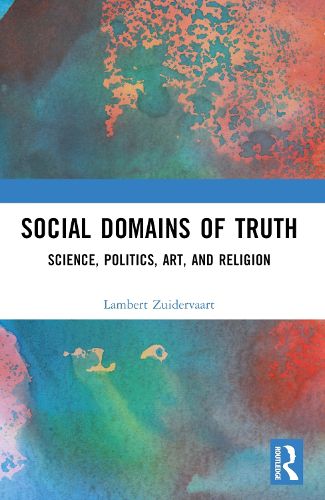Readings Newsletter
Become a Readings Member to make your shopping experience even easier.
Sign in or sign up for free!
You’re not far away from qualifying for FREE standard shipping within Australia
You’ve qualified for FREE standard shipping within Australia
The cart is loading…






Truth is in trouble. In response, this book presents a new conception of truth. It recognizes that prominent philosophers have questioned whether the idea of truth is important. Some have asked why we even need it. Their questions reinforce broader trends in Western society, where many wonder whether or why we should pursue truth. Indeed, some pundits say we have become a "post-truth" society. Yet there are good reasons not to embrace the cultural Zeitgeist or go with the philosophical flow, reasons to regard truth as a substantive and socially significant idea.
This book explains why. First it argues that propositional truth is only one kind of truth-an important kind, but not all important. Then it shows how propositional truth belongs to the more comprehensive process of truth as a whole. This process is a dynamic correlation between human fidelity to societal principles and a life-giving disclosure of society. The correlation comes to expression in distinct social domains of truth, where either propositional or nonpropositional truth is primary. The final chapters lay out five such domains: science, politics, art, religion, and philosophy. Anyone who cares about the future of truth in society will want to read this pathbreaking book.
$9.00 standard shipping within Australia
FREE standard shipping within Australia for orders over $100.00
Express & International shipping calculated at checkout
Truth is in trouble. In response, this book presents a new conception of truth. It recognizes that prominent philosophers have questioned whether the idea of truth is important. Some have asked why we even need it. Their questions reinforce broader trends in Western society, where many wonder whether or why we should pursue truth. Indeed, some pundits say we have become a "post-truth" society. Yet there are good reasons not to embrace the cultural Zeitgeist or go with the philosophical flow, reasons to regard truth as a substantive and socially significant idea.
This book explains why. First it argues that propositional truth is only one kind of truth-an important kind, but not all important. Then it shows how propositional truth belongs to the more comprehensive process of truth as a whole. This process is a dynamic correlation between human fidelity to societal principles and a life-giving disclosure of society. The correlation comes to expression in distinct social domains of truth, where either propositional or nonpropositional truth is primary. The final chapters lay out five such domains: science, politics, art, religion, and philosophy. Anyone who cares about the future of truth in society will want to read this pathbreaking book.